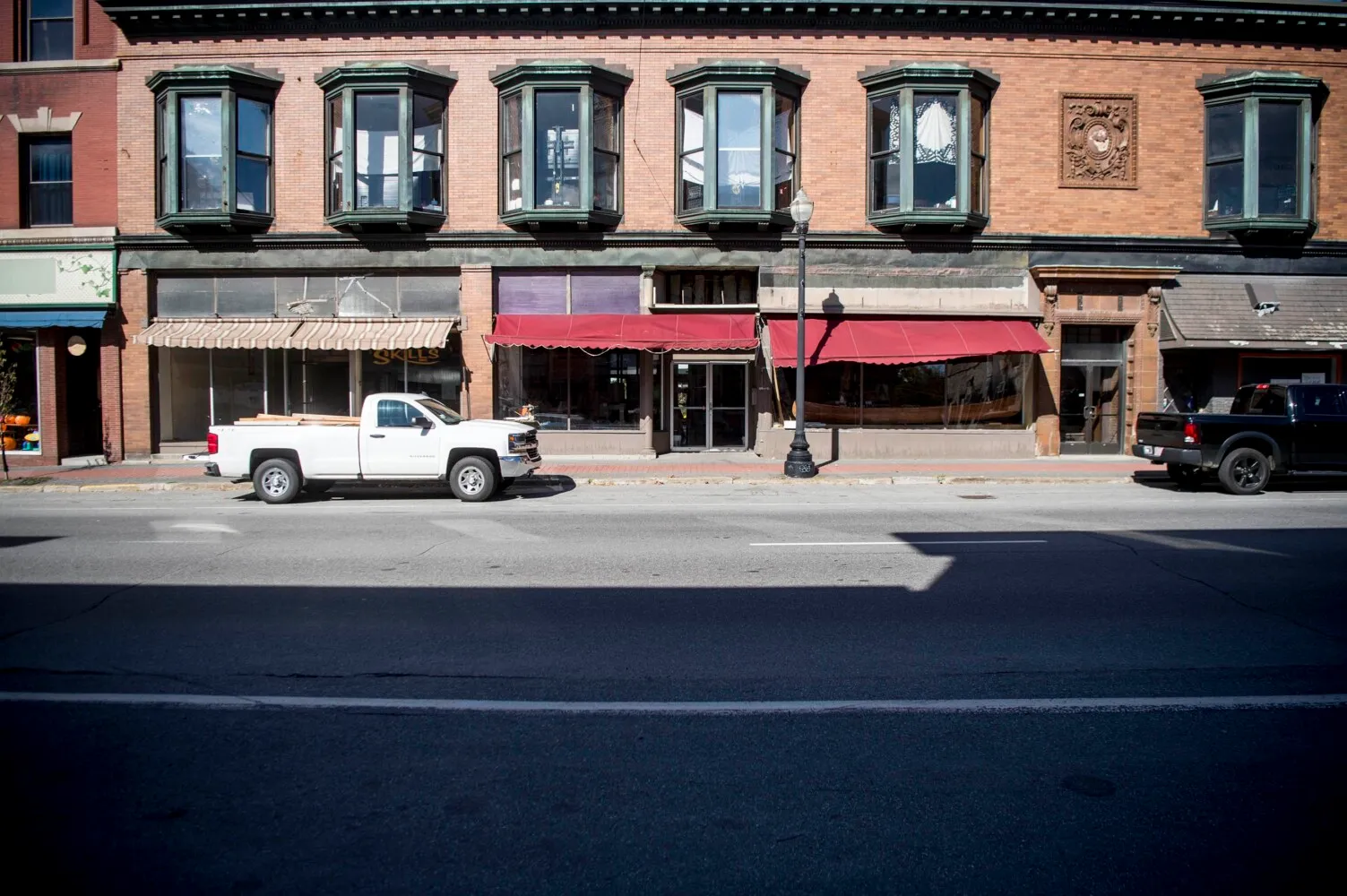By Amy Calder
Copyright centralmaine

The Community Regional Charter School in Skowhegan and Cornville is seeking to buy land on Eight Rod Road in Waterville to build a new school and combine its three schools there.
But before it can do so, the Waterville City Council must approve a change in the city’s zoning ordinance to add public and private schools to permitted uses in the Commercial-D zone.
The council is scheduled to consider voting on Tuesday to refer the request to the Waterville Planning Board for a public hearing and recommendation. The board then would send a report to the council, which makes the final decision on zone changes.
The charter school is a free, public school with an annual budget of $5 million that enrolls about 400 students, has more than 55 full-time employees and plans to add 50 to 125 staff positions over the next 10 years, according to information issued to the council.
The school includes the Creative Children’s Academy in Skowhegan serving children ages 4-5 in prekindergarten to kindergarten; Dimensions Academy in Cornville, which serves children ages 5-13 in grades kindergarten through grade eight; and Overman Academy in Skowhegan for students ages 12-17 in grades seven through 12.
The charter school has a contract to buy the 41 acres that is now owned by Trafton Properties LLC.
A letter to the council from the charter school’s executive director, Travis Works, dated Sept. 9 states that after an extensive search, the school identified the west side of Eight Rod Road in Waterville to be the most suitable site and offers ample space for the school. It also would provide access to public water, sewer and three-phase power, according to Works.
Works did not immediately return messages left Monday on his voicemail, as well as at the charter school central office. Contacted Monday, Waterville Mayor Mike Morris said he had not yet had a chance to sit down with Works to discuss the school’s plans.
“Any type of entity that comes in direct competition, potentially, can have an impact on us, on the students,” Morris said.
The state funds student education, whether students attend a charter school or public school system such as Waterville’s.
“Certainly, there are concerns there, so we need to be aware of and cautious about it,” Morris said. “This is going to be an interesting situation. I really hope that we can navigate through this respectfully as we go through and we don’t have a lot of the tension we had with the church rezoning.”
He was referring to a controversial request by First Church of Waterville to rezone property so it could tear down buildings and expand its parking lot.
Morris said the school request is very new and whatever the council decides Tuesday will be just the beginning of discussions. He said the school is doing it the right way by coming to the city before it purchases property.
“That’s good. I appreciate that,” Morris said.
Waterville Schools Superintendent Peter Hallen acknowledged Monday that if students opt to attend a charter school, such enrollment shifts would affect the stability of a nearby school system’s resources.
But Hallen said he has a great respect for the mission of Maine’s charter schools, which he said play an important role in providing educational opportunities for students.
“As an educator, my priority is to make sure that all students, regardless of where they attend, have the support that they need,” Hallen said.
He said his feeling about charter schools has less to do with where they are than the services that they provide.
The Community Regional Charter School was established in 2012 as the first public elementary charter school, according to Works, who said it remains the only school in the region that employs a competency-based education model and offers an ungraded, customized learning environment.
The school places students based on their social, emotional and academic needs, unlike traditional, time-based schools where groups learn by grade level, he said. The charter school’s approach empowers students to self-regulate and advocate for their own needs effectively, according to Works.
Works said in the letter to councilors that the charter school would have to fund extending utilities to the land on Eight Rod Road where it would build. Having public water would require installing more than 5,000 feet of 12-inch main from the eastern side of Trafton Road to Eight Rod Road, which would provide public water access to hundreds of undeveloped properties. The sewer line from Webb Road would have to be extended to Eight Rod Road and three-phase power would have to be extended down Trafton Road and up Eight Rod Road.
“These utilities will enable direct access and proximity to critical utilities for hundreds of undeveloped acres in Waterville,” Works’ letter states.
Works said the charter school would provide school choice to families, but its educational model may not be suitable for all learners and families.
“CRCS offers a specific educational program that is not directly competing with the education provided by Waterville Public Schools or its surrounding school administrative units. Given the recent increase of enrollments in Waterville and Winslow, families have expressed a need for access to our educational model.”
The letter adds that the charter school acknowledges concerns about a potential decline in Waterville public school enrollment, particularly with the significant rise in parents opting for homeschooling and superintendent agreements.
“In response to the concerns with enrollment, CRCS is exploring strategies to address them, including implementing a cap on the enrollment of learners residing in Waterville.”
If the charter school is successful in moving to Waterville, it would be the fourth of 10 charter schools in Maine to be located in fairly close proximity. There are charter schools in Hinckley, Unity and Augusta.
The council meeting will be held at 6 p.m. in the City Hall Annex at 46 Front St.



